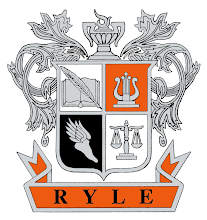Emma Sullivan’s potty-mouthed tweet
By Ruth Marcus,
Emma Sullivan, you’re lucky you’re not my daughter. (Dangerous sentence, I know: My daughters might agree.)
If you were my daughter, you’d be writing that letter apologizing to Kansas Gov. Sam Brownback for the smartalecky, potty-mouthed tweet you wrote after meeting with him on a school field trip.
Also, that smartphone? The one you posed with, proudly displaying the tweet in which you announced that Brownback “sucked” and added the lovely hashtag #heblowsalot? Turned off until you learn to use it responsibly.
I may sound alarmingly crotchety here, but something is upside down in the modern world, which has transformed Sullivan into an unlikely Internet celebrity and heroine of the liberal blogosphere.
To recap, Sullivan, an 18-year-old senior at Shawnee Mission East High School, was on a school-sponsored Kansas Youth in Government trip to Topeka when she heard the conservative Republican governor speak.
Sullivan did not actually give Brownback a piece of her mind, as she claimed, but she let her feelings be known via Twitter: “Just made mean comments at gov brownback and told him he sucked, in person. #heblowsalot.” Sullivan had previously opined on such weighty subjects as the “Twilight” series (“Dear edward and jacob, this is the best night of my life. I want u. Love, ur future wife”) and Justin Bieber.
Sullivan’s foray into political commentary caught the eye of Brownback’s office, which was not amused. The Mission East principal called Sullivan to his office to demand that she write a letter of apology.
Of course, the governor’s office was dumb to complain about a tweet that no one saw. Pre-controversy, Sullivan had some 60 followers. Now she has 15,000. On Monday, Brownback was predictably backtracking. “My staff overreacted to this tweet, and for that I apologize,” he said in a statement.
Of course, Sullivan has a First Amendment right to express her views — although not unlimited. In a 1969 case upholding students’ right to wear black armbands to protest the Vietnam War, the Supreme Court found that students do not “shed their constitutional rights to freedom of speech or expression at the schoolhouse gate” but added that school administrators may prohibit expression that will “materially and substantially disrupt the work and discipline of the school.”
The unresolved legal question is where the schoolhouse gate exists in an Internet age, as administrators grapple with social media and cyberbullying.
The Supreme Court recently refused to hear the case of a Connecticut high school student who was disqualified from running for senior class secretary after she referred to school administrators in a blog post with a vulgarity. Another case awaiting the justices’ action involves two Pennsylvania eighth-graders who were suspended after they created a fake MySpace profile depicting their middle school principal as a sex addict.
But the First Amendment focus confuses what can be constitutionally prohibited with what ought to be done. Regardless of whether the school could force Sullivan to apologize to the governor — authorities ultimately backed down — it was perfectly appropriate for the principal to explain how her attitude and language during an official trip reflected poorly on the school.
More to the point, as I constantly remind my daughters, parents are not bound by constitutional constraints. The Constitution does not grant teenagers the fundamental right to have a cellphone or use foul language on it. The parental role is to inculcate values of respect for authority — even those you disagree with — and the importance of civil discourse. It’s not to stand up for your little darling no matter how much she mouths off.
Not the Sullivans. After the governor complained, her older sister alerted the media. “It’s the speech they use today. It’s more attention-grabbing,” her mother, Julie Sullivan, told the Associated Press. “I raised my kids to be independent, to be strong, to be free thinkers. If she wants to tweet her opinion about Governor Brownback, I say for her to go for it and I stand totally behind her.”
With reinforcements. “We don’t want to stifle our kids’ political free speech,” parent Kate Cook told a meeting of the local school board. “Even though it may not be the best choice of words, that’s how kids communicate with each other.”
It is until we parents insist such language is not acceptable, explain that it is possible to disagree civilly — and insist on an apology when our children fall short.
“I would do it again,” said Emma Sullivan, emboldened rather than chastened. To put it in her terms, that blows a lot.















No comments:
Post a Comment